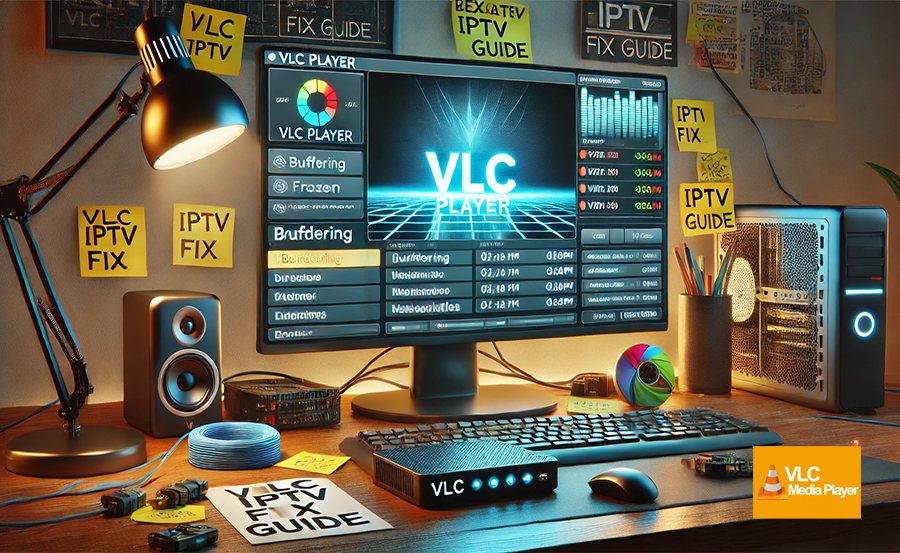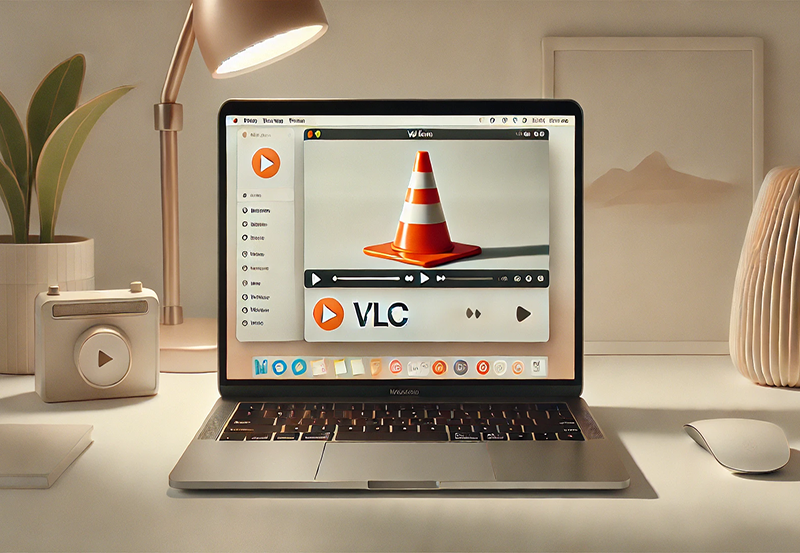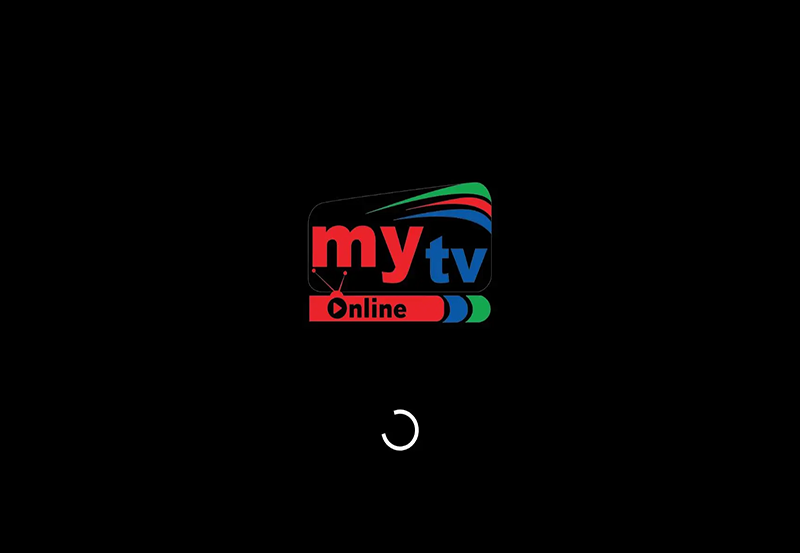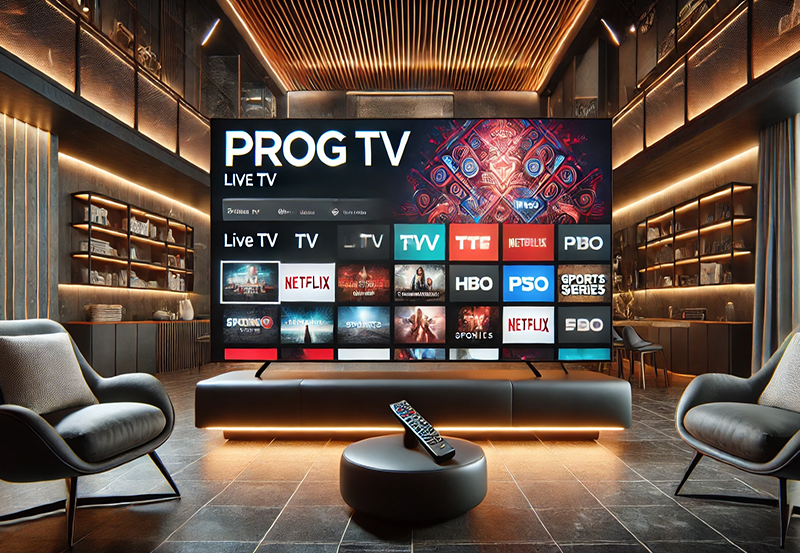Today, seamless video streaming is nothing short of essential in our connected world. As usage of IPTV services continues to rise globally, the need for reliable, uninterrupted performance is crucial. Especially for those in regions like the UK where IPTV for IPTV Smarters is prevalent. Yet, faulty playback issues can hinder the user experience, leading us to address how to solve VLC’s troublesome intermittent IPTV playback.
Understanding IPTV: The Backbone of Modern Streaming
Internet Protocol Television, commonly referred to as IPTV, represents a revolution in how content is delivered. It differs from traditional television distribution methods, offering viewers a more flexible and tailored watching experience. However, IPTV isn’t immune to the technical hitches that can plague digital services, such as buffering or playback interruptions.
What is IPTV?
IPTV stands for Internet Protocol Television, a technology that streams television programming via internet protocol networks. Unlike traditional television formats, it provides a more interactive, on-demand experience. This can range from live TV to video on demand (VOD) services.
Pro Tip:
Stream live sports and entertainment seamlessly with Top IPTV subscriptions for unparalleled quality and performance.
The customization offered by IPTV makes it particularly appealing. Viewers aren’t tethered to a specific schedule, and content is accessible via a range of devices from TVs to smartphones, enhancing its appeal to users globally.
Why Use IPTV for IPTV Smarters in the UK?
The UK’s adoption of IPTV for IPTV Smarters aligns well with the nation’s tech-savvy audience. IPTV Smarters allows users to access a vast assortment of content through an intuitive interface. It’s increasingly popular because it combines traditional TV viewing with the convenience of streaming technology.
Moreover, IPTV’s flexibility in service offerings meets the diverse needs of UK users. Whether it’s local broadcasts or international content, the adaptability of IPTV Smarters platforms caters to every viewer’s preference.
Technical Challenges: Why Intermittent Playback Occurs
No technology is without its flaws, and IPTV is no exception. Users frequently encounter intermittent playback with VLC media player, an open-source tool often used for IPTV streaming. Understanding the underlying causes can set the stage for effective problem-solving.
Common Causes of VLC Playback Issues
Several factors could lead to intermittent playback issues when using VLC for IPTV:
- Network Fluctuations: Unstable internet connections can disrupt streaming.
- Outdated Software: Failing to update VLC can lead to compatibility issues.
- Incorrect Settings: Misconfigured network or streaming settings could be blamed for interruptions.
- High Network Traffic: Congestion in local networks or ISP throttling during peak hours impacts performance.
By identifying the root causes of these glitches, users can take informed steps toward resolving playback interruptions.
VLC’s Role in IPTV Streaming
VLC media player is widely used for its versatility and compatibility with different media formats. It’s particularly favored among IPTV users due to its extensive codec support. Unfortunately, its flexibility can come at a cost, as improper installation or outdated versions often contribute to playback hiccups.
Furthermore, VLC’s expansive settings menu offers numerous customization options, which, if misconfigured, can exacerbate streaming issues. A deeper understanding of VLC’s function is vital to leveraging it effectively for IPTV streaming without disruptions.
Methods to Diagnose and Resolve VLC Playback Interruptions
It’s time to explore practical ways to troubleshoot and, eventually, fix VLC’s intermittent IPTV playback problems. By following some tested strategies, users can minimize disruptions and enjoy smooth streaming experiences.
Check Your Network Connection
Network reliability is paramount for IPTV streaming. Start by running a speed test to verify that your connection is sufficient for streaming. Ideally, you should have a minimum download speed of 5-10 Mbps for standard definition, with more required for HD content.
If discrepancies are found, restart your router, and consider using a wired connection if Wi-Fi proves unreliable. It’s crucial to ensure that your network operates at its best capacity.
Update VLC Media Player Regularly
An outdated VLC version often has overlooked in causing problems. Checking for updates frequently can prevent unnecessary playback issues. VLC developers regularly release updates that fix bugs and enhance performance, so keeping it current is essential.
Visit the official VLC website or its “Help” menu to check whether a more recent version is available. Updating is straightforward and can make a substantial difference in performance.
Change VLC Settings for Optimal Streaming
VLC’s default settings might not be ideal for streaming IPTV. Adjusting the cache size, for instance, can help buffer enough video to prevent interruptions:
- Open VLC, then head to Preferences.
- Select Input / Codecs.
- Increase the Network Caching value to 1000ms or higher.
These changes offer a smoother stream by minimizing the likelihood of buffer-related stoppages.
Consider Network Protocols
It’s also useful to modify the protocol VLC uses for receiving streams. Users can experiment with protocols under Media > Open Network Stream and selecting between one of the available options like HTTP, RTP, and RTSP. Each protocol offers diverse advantages, depending on network architecture.
Frequently, RTSP might be effective for direct streams while HTTP can provide better performance where media segments are downloaded.
Optimizing IPTV Services for Smooth Streaming
While addressing VLC-specific issues, it’s equally vital to optimize the IPTV service itself. By ensuring the service is set up properly, senders and receivers of content alike benefit from an enhanced streaming experience.
Seeking Support From IPTV Service Providers
Don’t overlook the help available from IPTV service providers. Providers often have comprehensive support solutions, ranging from detailed user guides to responsive customer support teams. Using these resources can rapidly identify whether problems lie with the service rather than hardware or software.
Choosing Reliable IPTV Services
Opting for a reputable IPTV provider is critical. If reliability is consistently problematic, consider switching providers. Many services come with trial periods, allowing users to test their streaming capabilities before full membership commitment.
Reputable services prioritize bandwidth management and viewer experience, ensuring that during peak times, performance remains unaffected.
A Closer Look: Future of IPTV and VLC
Understanding the present landscape offers insight into IPTV’s potential growth. The convergence of technology and media continues at a remarkable pace, giving rise to innovative solutions and groundbreaking streaming capabilities.
The Growing Importance of IPTV for UK Viewers
There’s a distinct shift towards IP-based content distribution, with UK viewers at the forefront of IPTV adoption. As broadband speeds increase and network infrastructures improve, IPTV becomes a staple in digital households.
Moreover, it suits the fast-paced lifestyle by delivering content on demand, dovetailing with digital consumer expectations.
VLC’s Role in Adapting to Streaming Trends
As streaming technology evolves, VLC adapts by enhancing its capabilities while maintaining an open-source framework. It’s positioned itself not just as a player, but as a comprehensive media solution catering to both traditional viewing and IPTV aficionados.
Its ability to integrate with cutting-edge streaming technology highlights its longevity and relevance in a rapidly shifting digital landscape.
Prospects for Future Improvement
Improvements lie in multicast adaptation for network traffic efficiency and personalized streaming recommendations. These potential developments promise to further enrich IPTV’s appeal and user experience.
As IPTV evolves, VLC remains a critical tool for accessing a wealth of content efficiently without succumbing to the common pitfalls of streaming.
FAQs on VLC and IPTV Streaming

Why does my IPTV keep buffering?
Buffering often results from insufficient bandwidth or an unstable internet connection. Ensuring high-speed internet and adjusting VLC’s network caching settings can mitigate this problem.
Is VLC the best choice for IPTV streaming?
VLC is a versatile choice due to its expansive format support and open-source nature, making it suitable for most IPTV streaming needs. However, users should explore settings for an optimal experience and consider other specialized players if necessary.
Can network congestion affect IPTV performance?
Yes, high network traffic, particularly during peak times, can compromise IPTV quality. Opting for wired connections or adjusting streaming protocols can help manage congestion-related issues.
How often should VLC be updated?
Keeping VLC up-to-date is crucial for maintaining performance. Check for updates frequently to benefit from the latest bug fixes and enhancements, generally released every few months.
What is the future of IPTV in the UK?
IPTV’s future in the UK looks promising with increased adoption due to its flexibility and user-centric content delivery. With advancements in broadband technology, its growth is likely to accelerate.
What setting adjustments enhance VLC player for IPTV?
Increasing network cache size and evaluating protocol usage (such as HTTP vs. RTSP) are effective settings adjustments for better IPTV experiences. Each user’s setup might require different configurations for optimal results.
Best Practices for Resolving IPTV Buffering Issues





